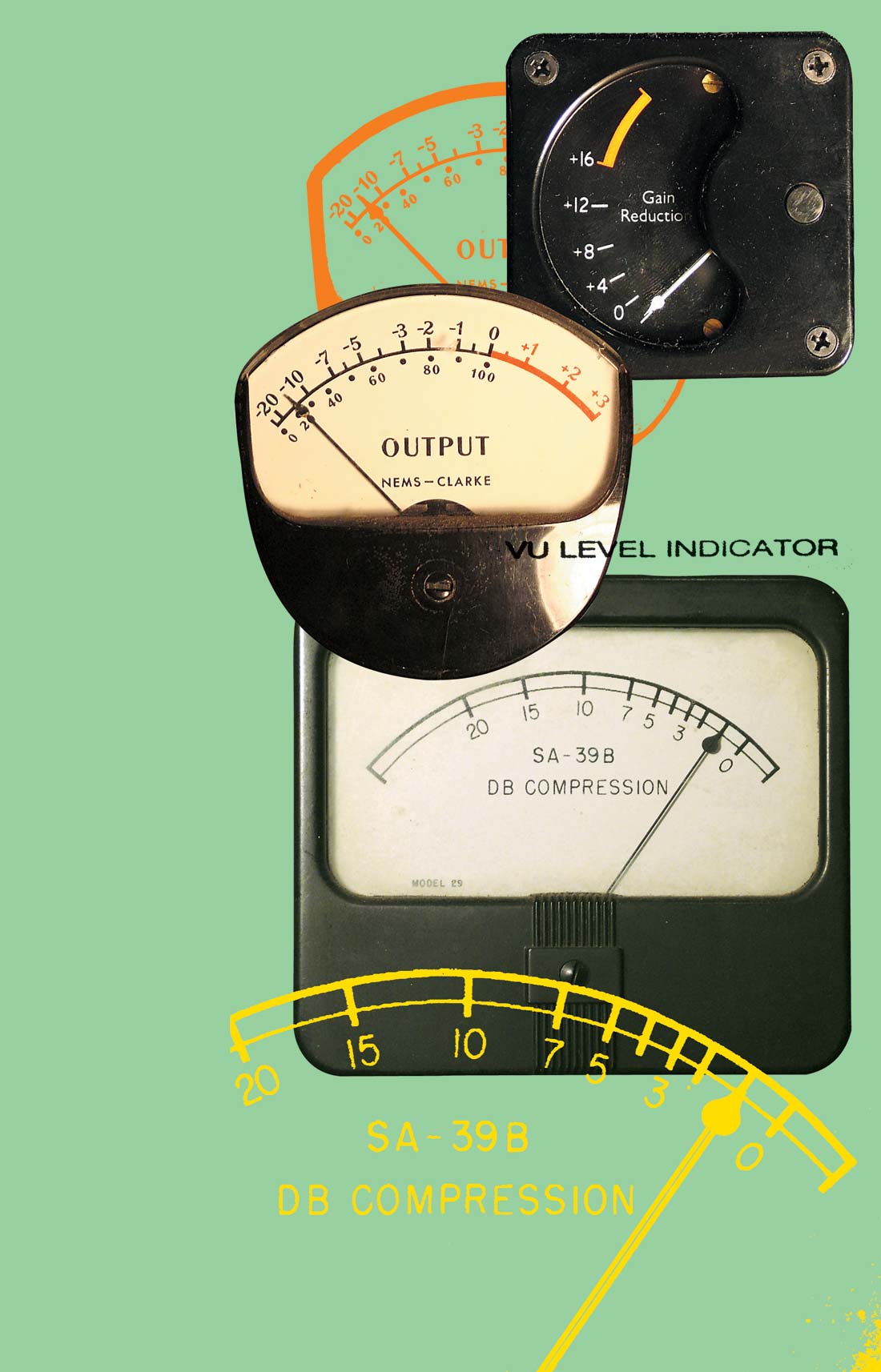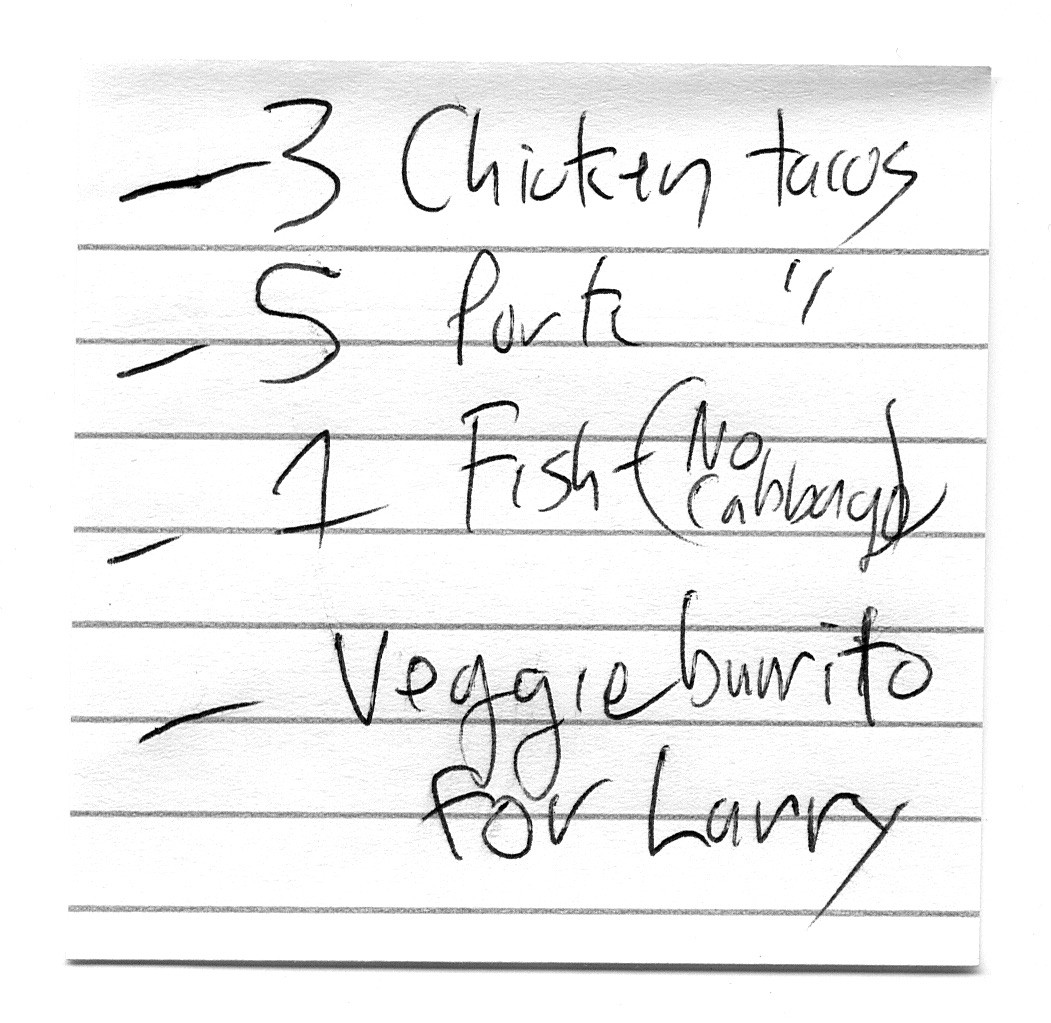"I read Tape Op because it talks about music and recording from what, in my mind, is the 'correct' angle — the artistic one. A common theme in this magazine is paying clients doing or saying ridiculous, counterproductive and/or downright unprofessional things when they're on the clock in the studio. Larry's "Words I Do Not Understand" end rant from the July/August issue is a perfect example of this — terms and phrases used by people who probably don't know what they're talking about. As a musician who has nowhere near the recording experience that they'd like to have, I read things like this very carefully. I take my art seriously, so the last thing I'd want to do in a studio setting is tick/turn off the engineer by coming off as blatantly green or unprofessional. I've read plenty of articles about what not to say or do when working on a recording, but I haven't yet seen anything about what to say or do. In other words, as a seasoned engineer, how would your ideal paying client behave before, during, and after the session? How can an intelligent, serious musician make the recording experience go as smoothly, quickly, and inexpensively as possible? It's helpful to read about all the don'ts, but a discussion of the do's would be even more useful." Jeff Blancato <jblancato@yahoo.com>
Good call Jeff. There's a good idea in your letter and I'm gonna try to run with it.
"How would your ideal paying client behave before, during, and after the session?" Any way they want. It's my job to work with these people, and assuming I'm in the studio with them I've seen something in their music or attitude I'd like to be involved with or otherwise the project is gonna be quick enough to be painless no matter what happens.
Don't worry about presenting yourself as "professional" if you are the artist/client. Most of the people I record are not professional — they work day jobs and do music because they love it, though they might wish it was their only job! Be honest in the studio — about what you know, what you hope to achieve and what you truly believe you are capable of. Are you sure that "smoothly, quickly, and inexpensively" are the hallmarks of a great session? That's certainly something to consider. There's always a lot of talk about being prepared, practicing a lot before sessions and general stuff like this. I've even written about this before. But you know what? Some of the most prepared sessions are also the most boring, stiff, no-fun experiences and resultantly dull albums that I have worked on. Sure, it's nice if the musicians have a good idea of the song structures, if their gear works, if there are extra strings, etc. But we can always work around that stuff. I did a record a while back where we had to take an amp to the shop and get a new speaker on the first day. The band was bummed to lose some time, and kept apologizing for not realizing it was blown. But to me, this is part of my job — to fine-tune the band and the gear so we can get the best performances possible. The hour or so it took to repair this amp paid off in a great guitar sound and the reassurance that we could count on the amp. Some of the best sessions I've ever had were very casual. "What should we try today? Let's work up that cover song we talked about. Let's try a live version of yesterday's song." Running sessions in a very linear (basic tracking for all songs, overdubs, vocals, mix) fashion is the usual scenario, but even just something as simple as recording each song one at a time can make the session more exciting and creative. Plus never underestimate the benefits from the feeling of accomplishment occurring sooner in the session...
One thing I'd always recommend to 'do' at a session is to remember the engineer is human. They need breaks and food and stuff just like you. It's amazing how urgent a session can get, and how everyone will cascade through a day of overdubs without giving the engineer a chance to catch their breath. This doesn't make for the best creative environment by any means. And the biggest faux pas? Making a food run eight hours into the session and not asking the engineer if they are hungry!
It's easier to say "What Not To Do", even if this isn't what you're asking me for.
Don't try to tackle more than is really possible regarding the amount of songs or the 'perfection' of playing. Usually this is a time/money issue, but sometimes it's just over-optimism or, ahem, people trying to perform far beyond their abilities. There's no easy way to figure this out — see last issue's end rant — but it's a guaranteed way to stress out the engineer/producer and make musicians play poorly.
But my main rule of thumb is this: Don't use words if you don't one hundred percent understand what they mean. I remember, many years ago, asking John Baccigaluppi for more compression on a weird prayer chant cassette we were dubbing on top of a song. What I wanted was a tinny sound, cut out the lows and highs and boost the mids. I thought this was compression. He added something and was, "Like this?" and I sat there not getting what I wanted and feeling dumb. Another time I had a client who wanted to overdub a guitar part on a live basic track. He kept saying, "Do a punch in". The engineer, who I was training, saw that this would be a very hard punch in and she had me do it. When I was able to get the track recorded in between some tights spots he asked where the live guitar went. He felt dumb — I felt bad. In both these cases if the musician had just used normal, non-recording lingo the problems would not have happened. This kind of problem seems to be less of an issue over time, as people mess around with recording software at home and learn a few basic ideas, but it still happens often enough. I'm totally happy when someone tries to explain sounds or things they want to go for in layman's terms. I can usually figure out what they might want, and suggest ways to achieve them. In fact, I think this is the beauty of this as a job, getting to be creative and interact with other creative folks.


